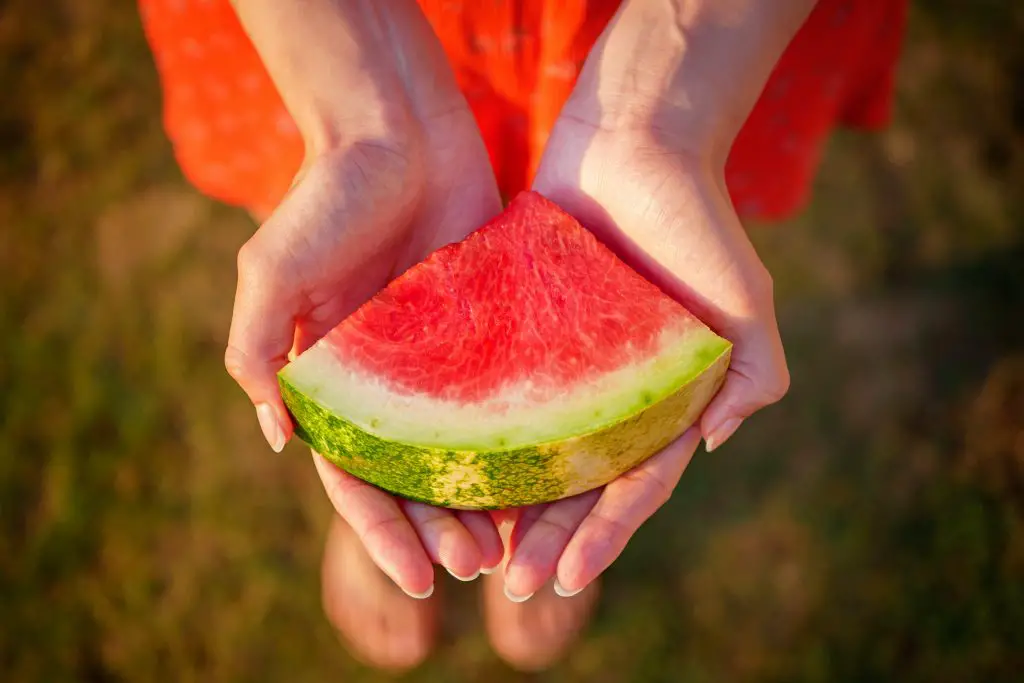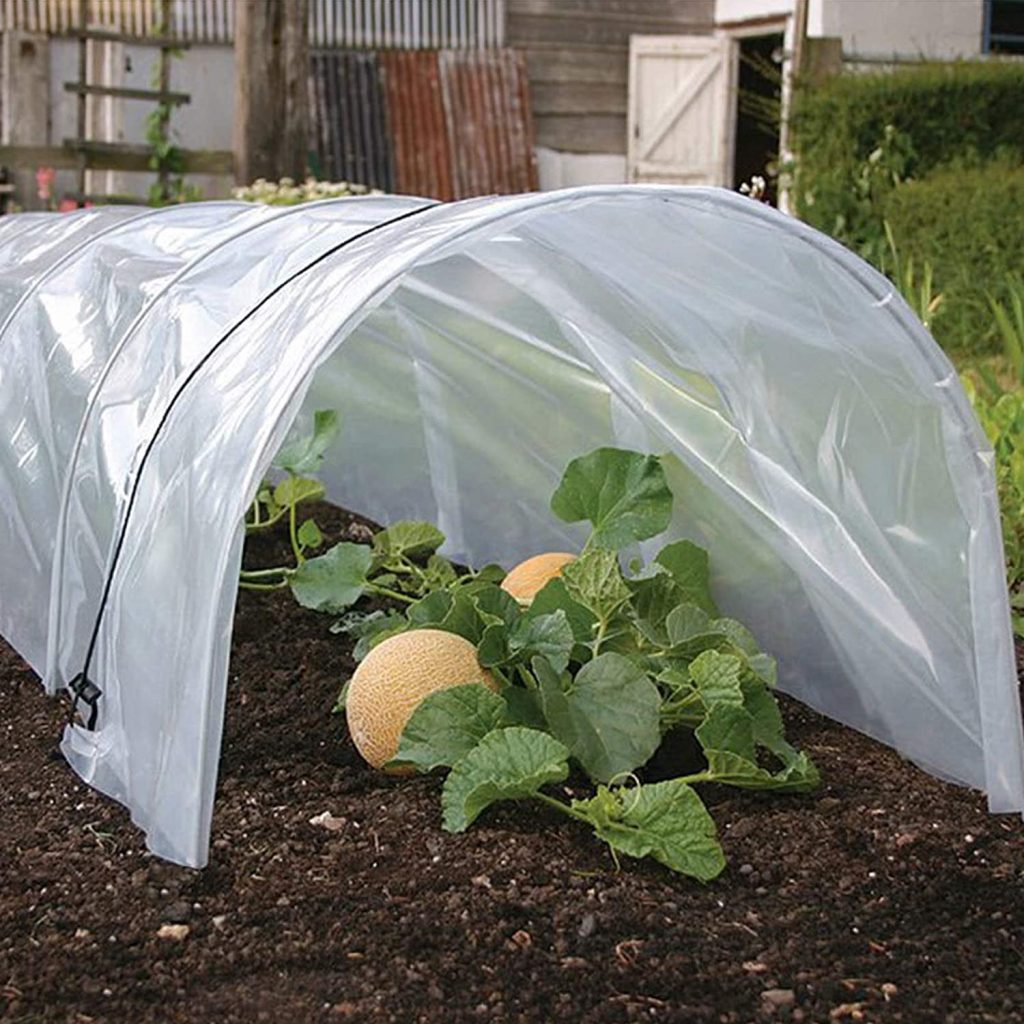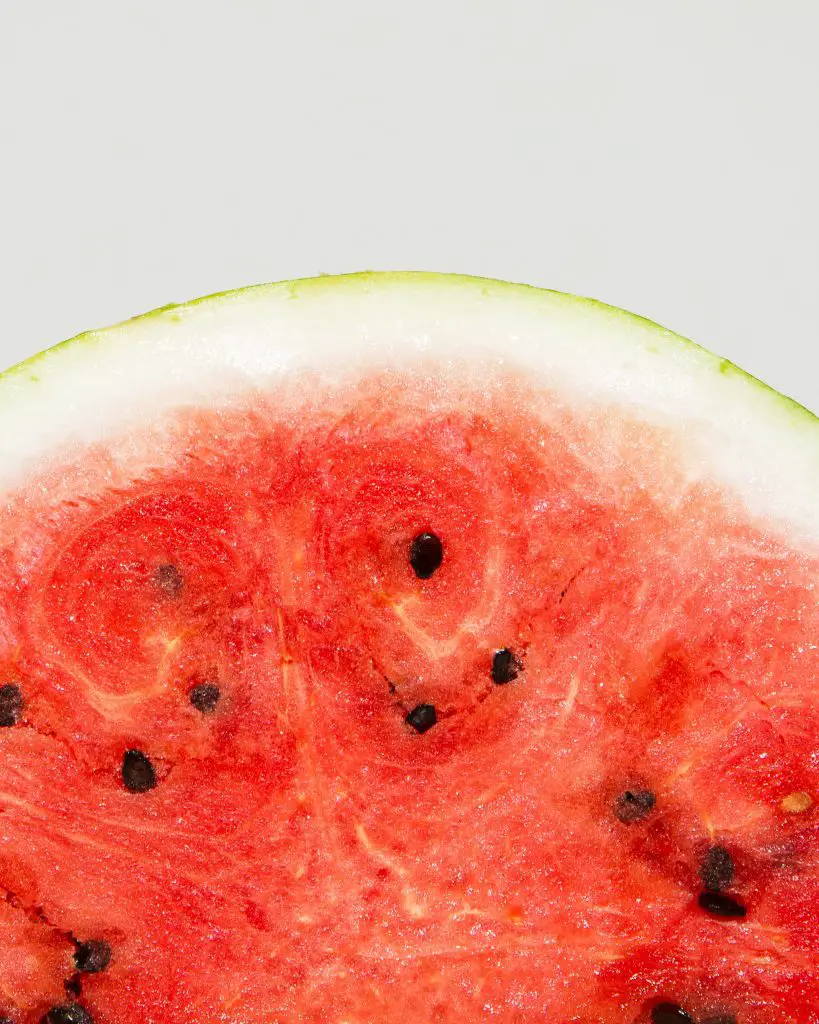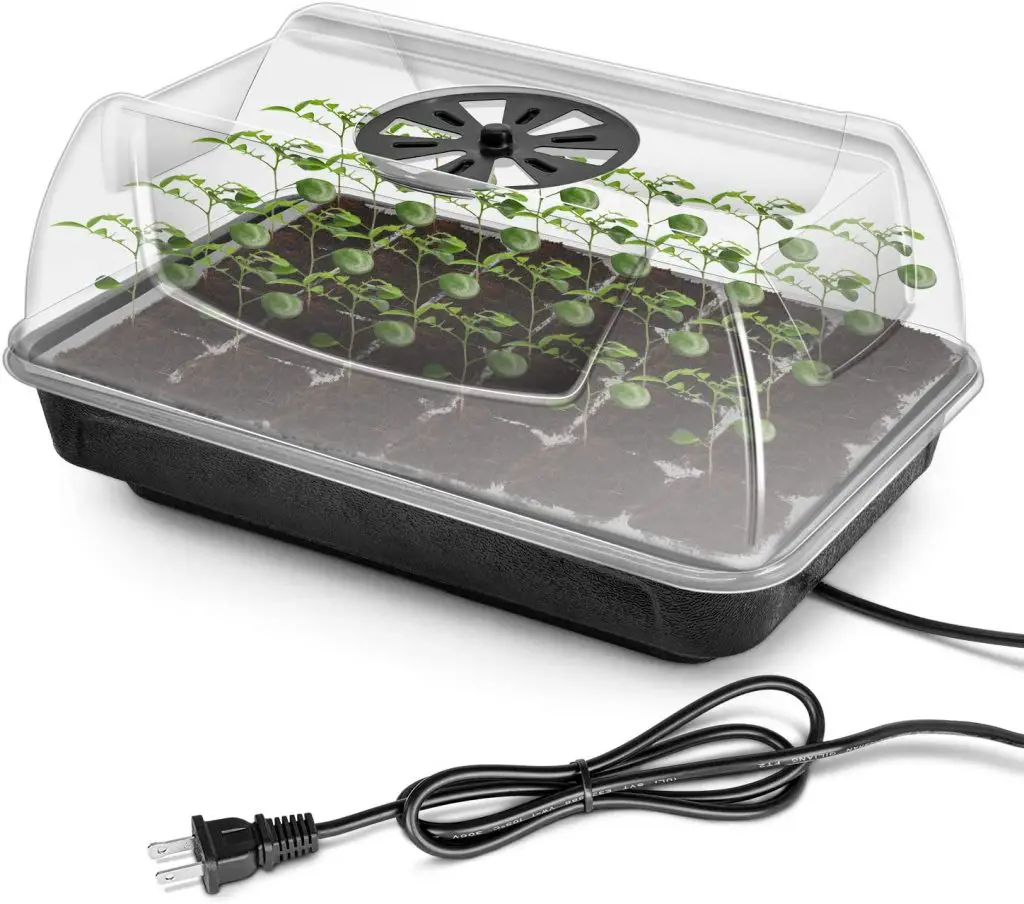How Long Does It Take Watermelon Seeds To Germinate? How Does Temperature Effect It? Eating a cool fresh watermelon from your own garden at the height of summer is one of life’s great pleasures. As a result of this many people choose to grow watermelons in their own backyard, however, one of the most common questions that is asked is how long does it take for watermelon seeds to germinate?
Watermelon will take approximately 5 to 12 days to germinate at temperatures of 68°F to 95°F (20 to 35°C) according to a study published by the University of California. However, below 59°F (15°C) the rate of germination reduces significantly and the seeds will not germinate below 50°F (10°C) degrees. A table showing the speed of germination is provided below for reference.
| Days To Germinate | Temperature (°F) | Temperature (°C) |
| – | 32 | 0 |
| – | 41 | 5 |
| Not Tested | 50 | 10 |
| Not Tested | 59 | 15 |
| 11.8 | 68 | 20 |
| 4.7 | 77 | 25 |
| 3.5 | 86 | 30 |
| 3.0 | 95 | 35 |
| – | 104 | 40 |
As watermelons are a member of the cucurbit family they are known to be relatively frost-sensitive which means that the seeds will generally not germinate when the temperatures are too cold. If you live in an area that has relatively cold winter temperatures and short growing seasons it is advisable to start the seeds off in seed trays indoors.
However, to ensure that the seeds germinate successfully is important that the temperatures are greater than 59 to 68°F (15 to 20°C). Given that some indoor spaces can fall below 59°F (15°C) in very cold regions at night it is advisable that you use a heated propagation tray as this will ensure a consistent and reliable temperature is maintained day or night.
If you are considering purchasing an item like this we would highly recommend that you select one that has a removable seed tray and a humidity dome. The reason for this is that the seed tray will be the part of the unit that will deteriorate first therefore being able to remove and replace it will extend the life of the unit significantly.
The humidity dome also plays an important role in maintaining constant temperatures around the seedlings so it is advisable to select propagation trays that have one. To see the latest price on a unit that has these features click on the link below.
How To Grow Watermelons
Watermelons are not the easiest plants to grow particularly in cooler environments as they do require a little bit of extra care to ensure that the plants really get going. As mentioned above we recommend starting the seeds off in a seed tray in most environments though it is possible to plant directly into the garden as well.
To start the seeds off fill the seed tray with good quality seed raising mix and then firm it down into the individual cells to ensure that you create a firm plug as this will make it easier to transplant the seedlings into the garden later on.
We recommend planting 2 to 3 seeds per cell to ensure that at least one seed germinates in every cell. If all the seeds germinate then thin to the strongest seedling. In terms of the best varieties to grow there arrange of different types of watermelons available. To read more about those watermelons that yield the highest and taste the best click here.

Once the seeds have been planted they will typically need to spend 6 to 8 weeks in the seed tray in a warm location until the seedlings get large enough to plant out into the garden.
Seedlings should only be planted out into the garden when the temperature is greater than 68°F (20°C), however, if you do want to plant out a little bit earlier it is possible to do it if you provide the seedlings with some protection in the form of a cloche or row cover.
Cloches can be made easily from old milk cartons with the base cut off and the lid removed, however, the limitation of using this type of protection is that it is relatively small so once the plant gets going you can no longer protect it using this method.
If you have inconsistent weather in your region even in the warmer months then you may want to consider getting a row cover that is relatively tall so that it suits a wide range of plants. The product that we recommend for this purpose is provided in the link below.

Extend Your Season With Growsun Row Covers
Planting Watermelon Seedlings Into The Garden
When planting watermelon seedlings into the garden it is recommended that they be planted into rich moist and free-draining soil that has plenty of nutrients. If you are concerned about the quality of the soil it is advisable to add a bag of compost before planting.
In terms of conditions, watermelons require a location that is relatively warm and gets at least 6 to 8 hours of sun per day and it will not tolerate any significant shade. The plants should be spaced approximately 2 to 3 ft apart as the plant will produce a trailing vine though it is not as vigorous as the vine produced by pumpkins. So if you want to make the most of your space you may consider also planting corn in the same area as that will not interfere with the growth of the watermelon.
Caring For Watermelon Plants
As the name suggests watermelons require a significant amount of water to accumulate in the plant to reduce a good quality fruit. To ensure that this happens it is advisable to apply a thick layer of mulch around the plants and also water them regularly throughout the season to ensure that they have plenty of moisture.

As the fruit develops one of the more challenging things for beginner gardeners is judging when the fruit is actually ripe to pick. There are three indicators that a most commonly used, the first is looking at the tendrils attached to the fruit which should have dried out completely. The second common indicator is when you tap on the fruit it will sound hollow and the third method is to look at the underside of the fruit which will usually have turned to a pale yellow rather than a white indicating that the fruit is ready to be picked.
Typically you can expect to get a couple of watermelons per plant however this does vary significantly depending upon the particular variety that is being grown.
I hope you have great success growing your watermelons at home if you have any additional comments or questions please leave them in the section below.
Relevant Articles
How Many Seeds In A Watermelon?
How Many Watermelon Per Plant?
What is The Best Watermelon To Grow?
Do Deer Eat Watermelon? And How To Stop Them

